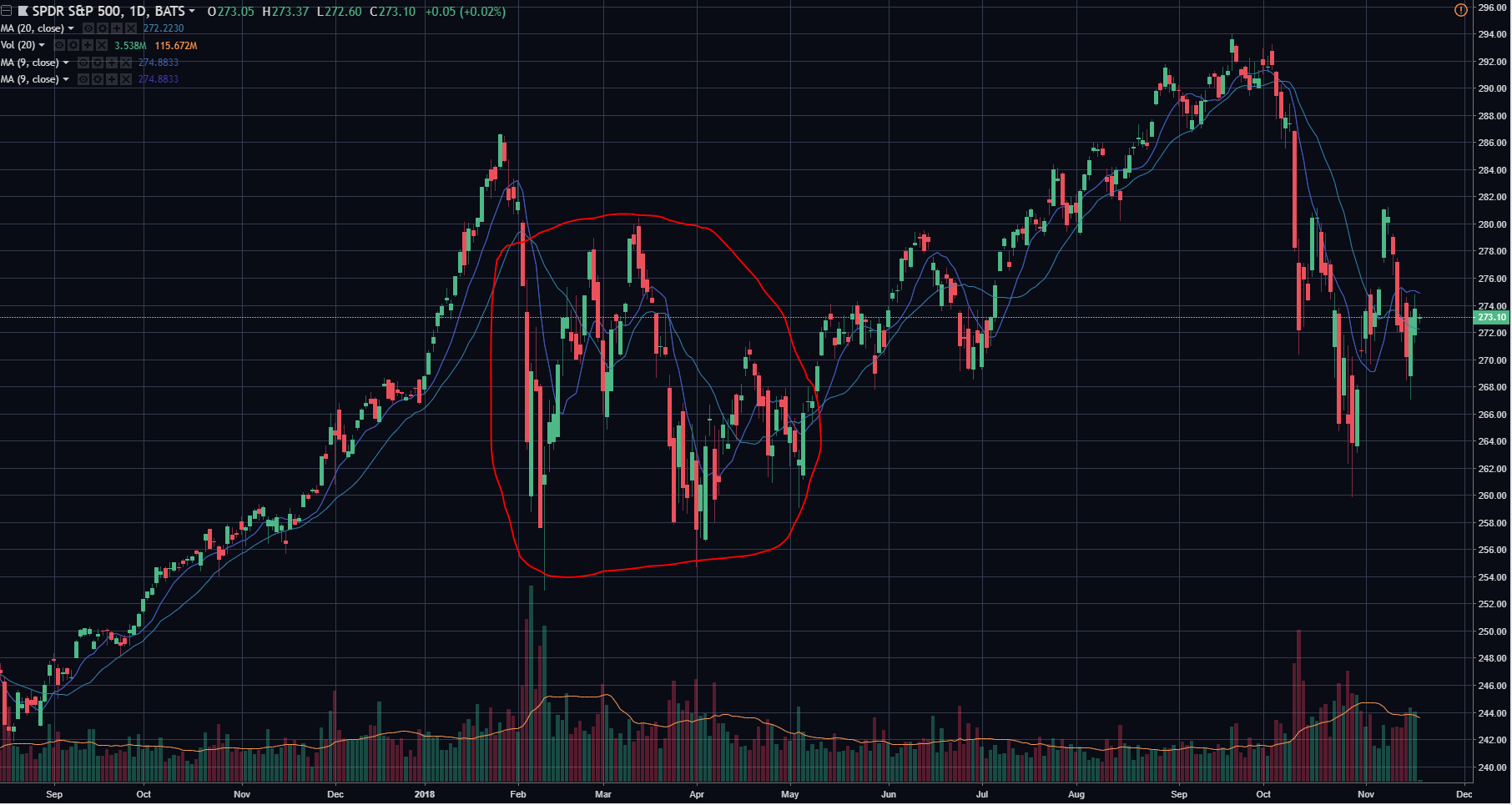
Let’s talk about the phase we are currently in at the moment: The distribution phase. This phase is characterized by some periods of volatility, but primarily is a period of consolidation. Control of the market begins to shift from buyers to the sellers, as traders and institutions begin to take their profits from the run-up period. Today we are going to talk about all of the characteristics of this phase, and what your trading approach should be.
The Distribution Phase
The distribution phase is primarily a period of consolidation. This period is usually a low-volume low-volatility, range-bound period with neither bulls or bears in control. It is similar to the accumulation period, but it comes at the end of a run-up, as demand no longer exceeds supply, and price starts to pullback and trade sideways. The start of the distribution phase is often characterized by strong selling with high relative volume. After the first pullback is done, the market will start trading sideways and become choppy.
There are hard sell offs in this phase, but do not confuse this with the run-down phase, AKA a bear market. The distribution phase has periods of strong selling, but never a sustained downtrend. A bear market will be months of a down-trending market, where it makes a consistent set of lower highs and lower lows.
Sometimes the distribution phase can transition back into a run-up phase. SPY earlier this year is a great example of this:
We saw a huge pullback in February, but the pullback was bought up. A few months later after this correction all of the major indices hit all time highs. Sellers came into the market, but it did not mean that a “bear market” had started. We will talk more about the characteristics of a bear market in tomorrow’s article and during the webinar.
How to Trade This Phase
The start of the distribution phase has a lot of opportunity for momentum traders. A lot of volatility comes into the markets as the sellers race to the exits as everyone realizes the uptrend is over. There is good shorting opportunity during this period when the market is pulling back (like we saw in October in the SPY). Once it finds a bottom, you will get nice bounce and some great long opportunities will present themselves.
After the early phase of the distribution period is over the market will become quite choppy. The market loses volume and volatility, and momentum traders lose a lot of edge. After the first few weeks of a distribution period the volume starts to die off, and a range starts to form. A big mistake traders make during this period is thinking that the market is going to go straight from the run-up phase to a bear market. That rarely happens in a major financial market.
SPY Example
Let’s look at the price action in SPY from the last couple months. In the middle of October we saw a huge selloff, marking the beginning of another distribution period in the overall market. You can see how much range and volatility came into the market over the next couple weeks. But now we are getting to the point where it is becoming choppy. Did we just double-top at the $281 resistance level and now we fade back to lows? Or did we just make a higher low a few days ago and are we now going to breakout from that resistance level? When there is not an obvious trend in the market like there is now, it is best to stay trading with smaller size to avoid taking big losses from getting chopped up.
If you missed yesterdays article talking about the run-up phase click here to read it.
Free Live Trading Webinar on Nov 20th and 21st
Wondering how to profit when the market crashes? We are doing a free workshop analyzing all the market cycles of the stock market in even more depth, which sectors you should be trading, and the best setups to use in the current market conditions. On the 2nd day you can watch me day trade live and see exactly how I trade and profit in the current market conditions.




